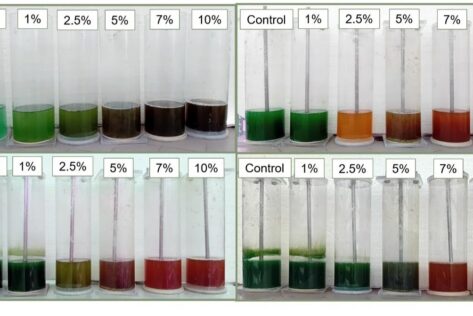heading

A possible solution to the increasingly urgent protein deficiency could be green biorefining, which is a process to get edible proteins out of plants. But one of the produced by-products called brown juice is harmful to the environment in large quantities, for example, it can cause eutrophication. In my research we wanted to get advantage of this situation by using the brown juice as an additive in the growing media of microalgae to increase the production and the nutritional value of the harvested biomass. Recycling brown juice this way helps to fight with protein deficiency because the harvested biomass contains high amount of protein, suitable for human or animal consumption.
This is how I came up with the idea for this project:To find solutions to problems and keep up with change, we need to understand how wetland ecosystems work!

Documentation
Microalgae produced in circular economy as an alternative protein source A possible solution to the increasingly urgent protein deficiency could be green biorefining, which is a process to get edible proteins out of plants. But one of the produced by-products called brown juice is harmful to the environment in large quantities, for example, it can cause eutrophication. In my research we wanted to get advantage of this situation by using the brown juice as an additive in the growing media of microalgae to increase the production and the nutritional value of the harvested biomass. Recycling brown juice this way helps to fight with protein deficiency because the harvested biomass contains high amount of protein, suitable for human or animal consumption.
